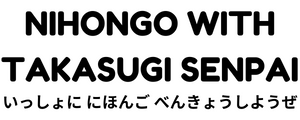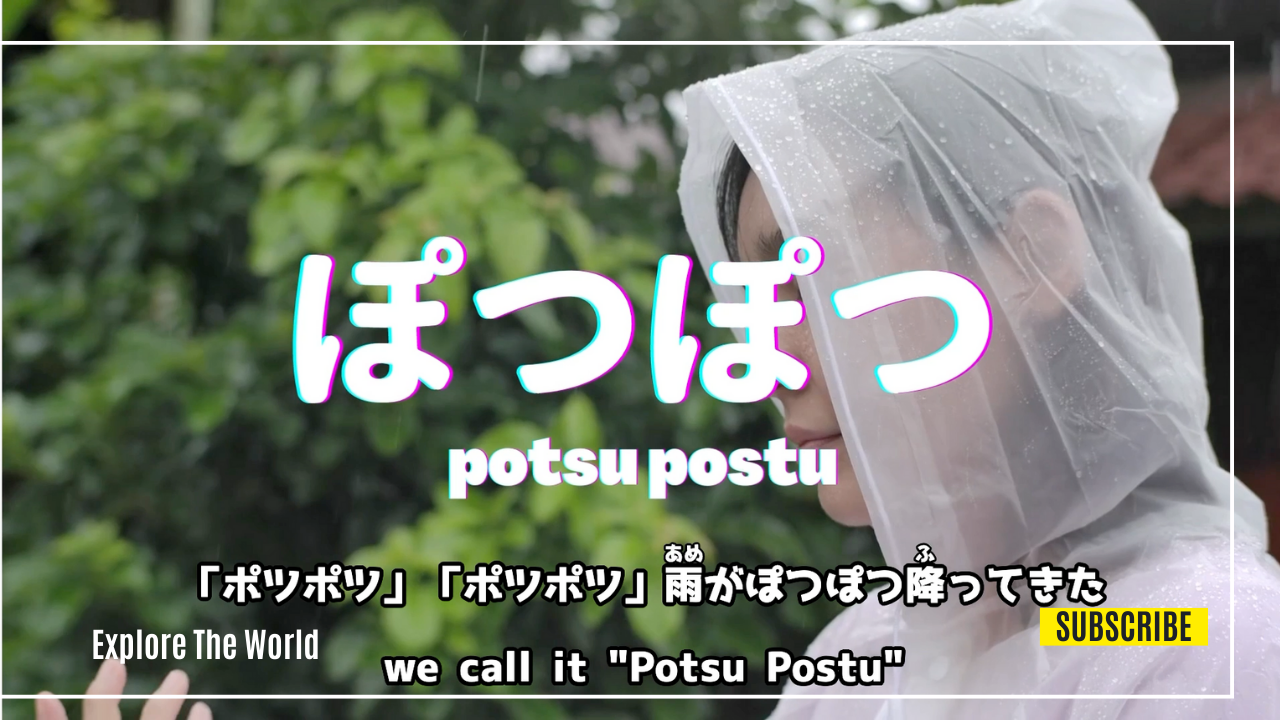In this episode of our podcast, we delve into the fascinating world of Japanese language and explore the diverse range of words used to describe different types of rain. Japan, with its rich cultural heritage and close connection to nature, has developed a nuanced vocabulary to capture the essence of rain in all its forms.
Watch on Youtube
In this episode of our podcast, we delve into the fascinating world of Japanese language and explore the diverse range of words used to describe different types of rain. Japan, with its rich cultural heritage and close connection to nature, has developed a nuanced vocabulary to capture the essence of rain in all its forms. Join us as we embark on a linguistic journey, uncovering the beauty and intricacy of these Japanese rain-related words. From gentle drizzles to torrential downpours, we’ll unravel the unique terms that paint vivid pictures of rain’s characteristics and its impact on the surroundings. We’ll introduce you to words like “kosame” for a light rain that softly kisses the ground. So, grab your umbrella and join us as we immerse ourselves in the captivating world of Japanese rain words. Get ready to explore the language’s rich tapestry and discover the beauty that lies within each raindrop.
Listen to the episode on Spotify
Script in Japanese
皆さんこんにちは。
Welcome toNihongo withTakasugi-senpaiいつもチャンネル登録とlike ありがとうございますThankyou for subscribing to my channel and like.
ありがとう
さあ今日は 今日本はですね、梅雨なので雨についてちょっとお話ししていきたいと思います。
日本語で雨というと雨、rainなんですけども、rainですねいくつか雨にも種類があります。
今日はそのいくつかの種類についてねお話ししていきたいと思います。
雨と一口に言ってもいろんな雨が確かにありますよね。
簡単に思いつくのは、「大雨」たくさん降る雨のことを大雨と言います。
もう一つは「小雨」ですね、小さい雨と書いて「小雨」ですね。
比較的軽い、ライトなrainですね、「小雨」と言います。
いくつか他にも種類があってこの2つだけじゃなくて、例えば夏と言えば「ゲリラ豪雨」
「ゲリラ豪雨」ですね。これはすごい名前ですけど、結構インパクトがある名前ですけども、急な豪雨ですね雷とか大雨を伴った突然の雨のことを言います。
そこからすぐに止むケースがほとんどなんですけど、「ゲリラ豪雨」ですね。あと「土砂降り」めちゃくちゃ降っていることを「土砂降り」とも言います。「大雨」と結構似た言葉ですね。
「本降り」というのもあります。「本降り」になってきたなーみたいな使い方なんですけど、最初はあんまり降ってない小雨で始まった雨なんですけど、雨がだんだん激しくなってくると本降りになってきたわーみたいな言い方をします。
他にもまだまだあって、例えば「にわか雨」
降り出してすぐ止む雨ですね。
「にわか雨」なのでちょっと雨宿りしていこうと雨宿りっていうのはちょっと建物の中に入っているとか屋根のあるところに避難して、雨が通りすぎるのを待つことを雨宿りと言います。
「にわか雨」と同じような意味が、「通り雨」ですね。これも一時的な期間の雨という意味です。
「霧雨」、霧のような雨のことを「霧雨」と言います。そして「雷雨」ですね。雷を伴う雨を「雷雨」と言います。今、日本は夏ですが夏に特有の雨といえば「夕立」ですね。夏の午後に降る雨を「夕立」と言います。「夕立」の後には虹がかかったりして綺麗なことが多いですよねということで、いくつか紹介しました。
他にも日本語でいろんな雨の呼び方があります。結構難しいというか、レアな言い方だと「天泣」っていう言葉もあります。これは晴れてるのに雨が降っていることを「天泣」と言います。
なかなか普段の会話では「天泣」だねみたいな感じは言わないですけど、知っておくといいかなと思います。他には「天泣」のこと、晴れてるけど雨が降っている時のことを「狐の嫁入り」と言ったりもしますね。狐はフォックスですね、嫁入りっていうのはお嫁さんに行くことを指します。狐が結婚式を上げるキツネが今結婚式を上げてるんだ、という時に雨が降ると言われていたそうです。
いくつか紹介してきました。他にもですねオノマトペもあります。雨が降る様子、たくさん降る時は「ザーザー」降る静かに雨が降る時はそうです「しとしと」
振り出した時は「ポツポツ」そうですね。「ポツポツ雨が、ポツポツ降ってきた雨に濡れた時もオノマトペが便利です「ビショビショ」になったよとか「ビシャビシャ」になったっていう言い方をします。
「びしょびしょ」とか「びしゃびしゃ」はすごく便利で何かねあのお水とかジュースをテーブルにこぼしてしまった時もテーブルがびしょびしょになっちゃったとか、そういう使い方もできます。
合わせて覚えておくとこの季節すごく便利だなぁと思いますはいということで、今日はいくつか雨の種類と雨にまつわるオノマトペについてご紹介してきました。
この季節だからこそ使う頻度が増えてくると思いますので、ぜひこの機会に覚えてもらえればなと思います。
はいそれではまた皆さんお会いしましょう良い週末をバイバーイ
Nihongo with Takasugi Senpai Podcast Script in English
Hello everyone.
Welcome toNihongo withTakasugi-senpaiThankyou for subscribing to my channel and like.
Thankyou for subscribing to my channel and like.
Today is the rainy season in Japan, so I would like to talk about rain.
In Japanese, rain means rain, but there are several types of rain.
Today, I would like to discuss
There are certainly many different kinds of rain.
One that comes to mind easily is “heavy rain,” which is rain that falls in large amounts.
Another is “light rain,” which is written as “small rain.
It is relatively light rain, and is called “light rain.
There are several other types of rain, not only these two, but in summer, for example, there is “guerrilla downpour.
For example, in summer, there is “guerrilla downpour. This is a great name, but it has quite an impact. It refers to a sudden downpour accompanied by thunder and heavy rain.
In most cases, the rain stops immediately. Also, “downpour” is a term used to describe a heavy downpour. It is quite similar to “heavy rain.
There is also “hon-rain,” which means “it’s really pouring. It is used to say that the rain started out as a light drizzle, but as the rain gets heavier and heavier, it has become a real downpour.
There are many other types of rain, for example, “Niwaka-rain.
It starts raining and then stops immediately.
When it rains, you take shelter in a building or a roof, and wait for the rain to pass by.
The same meaning as “a shower” is “a passing shower. This also means rain for a temporary period of time.
Drizzle” is a misty rain. Then there is “thunderstorm. Rain accompanied by thunder is called “thunderstorm. Now it is summer in Japan, and the rain peculiar to summer is called “evening shower. The rain that falls in the afternoon in summer is called “Douritsu. I have introduced a few examples of the beautiful rainbows that often appear after “Yudate.
There are many other ways to call rain in Japanese. One rather difficult or rare way to say it is “tenmain” (天泣). This is when it is raining even though it is sunny.
It is not often said in everyday conversation, but it is good to know. Other times we say “tennoi,” or when it is sunny but raining, it is called “kitsuno-no-yomeiri,” or “the bride of the fox. The fox is a fox, right, and the word “yomeiri” means going to be a bride. It was said that it rains when the fox is getting married, and the fox is getting married now.
I have introduced some of them. There are others, onomatopoeia. The way it rains, when it rains a lot, it “zaps,” when it rains quietly, yes, it “shitshitshitshito.
When it starts to sprinkle, it is “drizzle. When it’s raining, it’s raining, it’s raining, it’s raining, it’s raining, it’s raining, it’s raining, it’s raining, it’s raining, it’s pouring, it’s pouring, it’s pouring, it’s pouring, it’s pouring, it’s pouring.
You can also use “sobishobisho” or “bishabishasha” when you spill water or juice on the table, and the table is soaked.
So, today, I have introduced some types of rain and onomatopoeia related to rain.
I hope you will take this opportunity to learn them because you will be using them more and more often during this season.
Okay, I’ll see you all again, have a good weekend, bye-bye!

